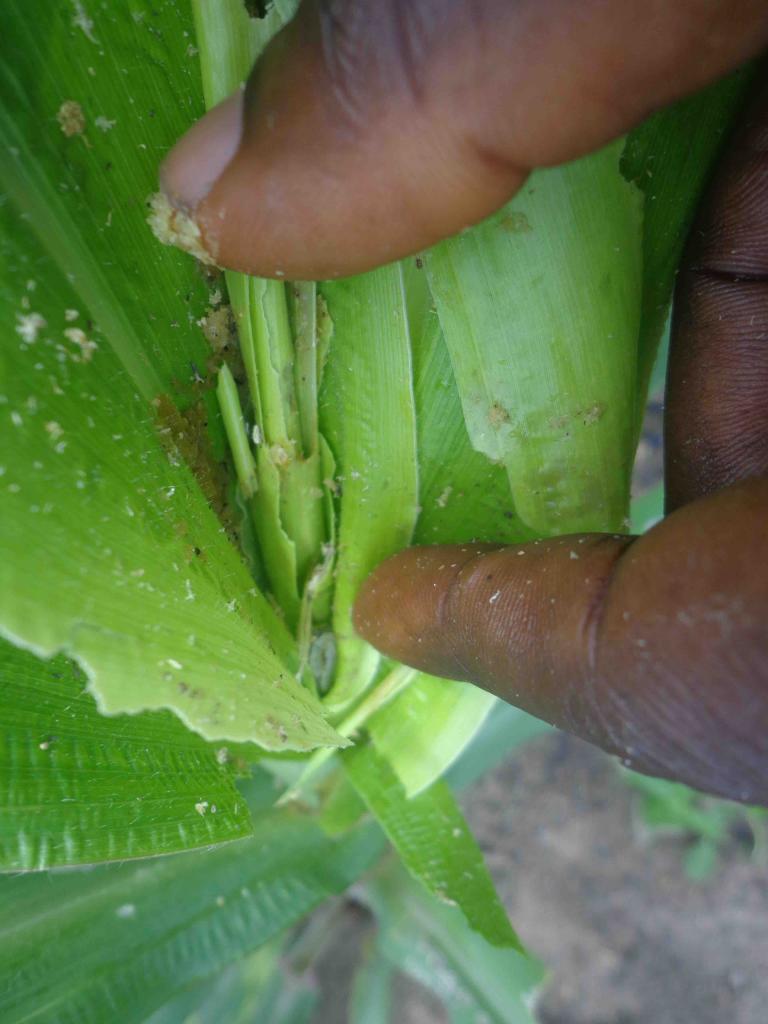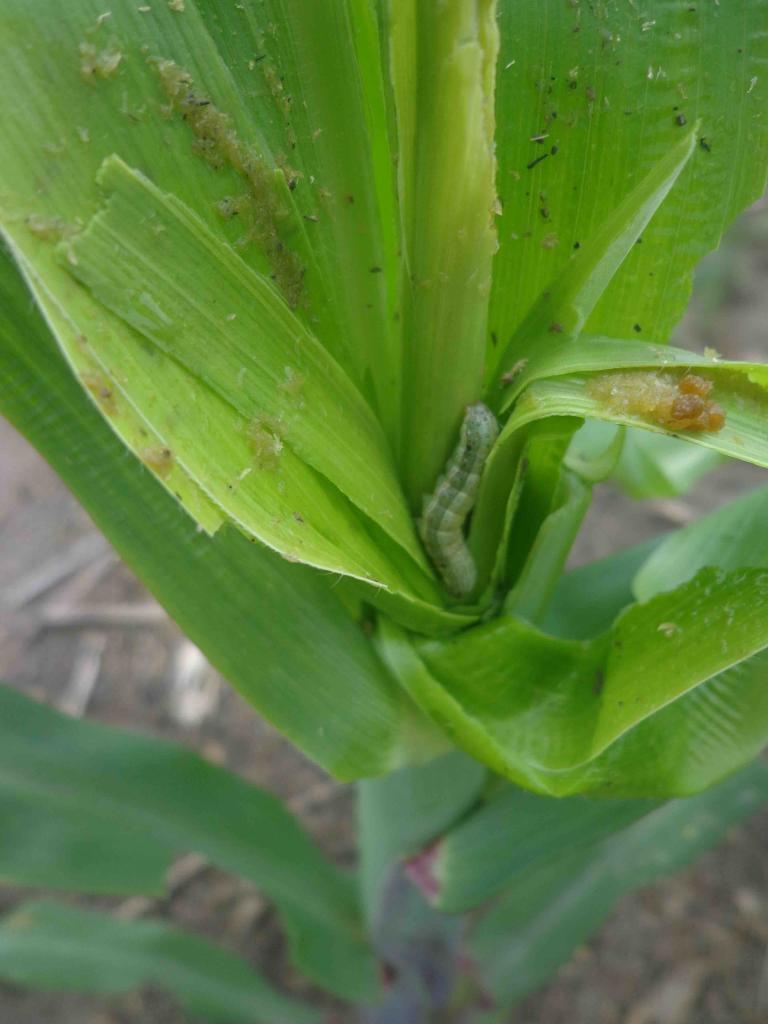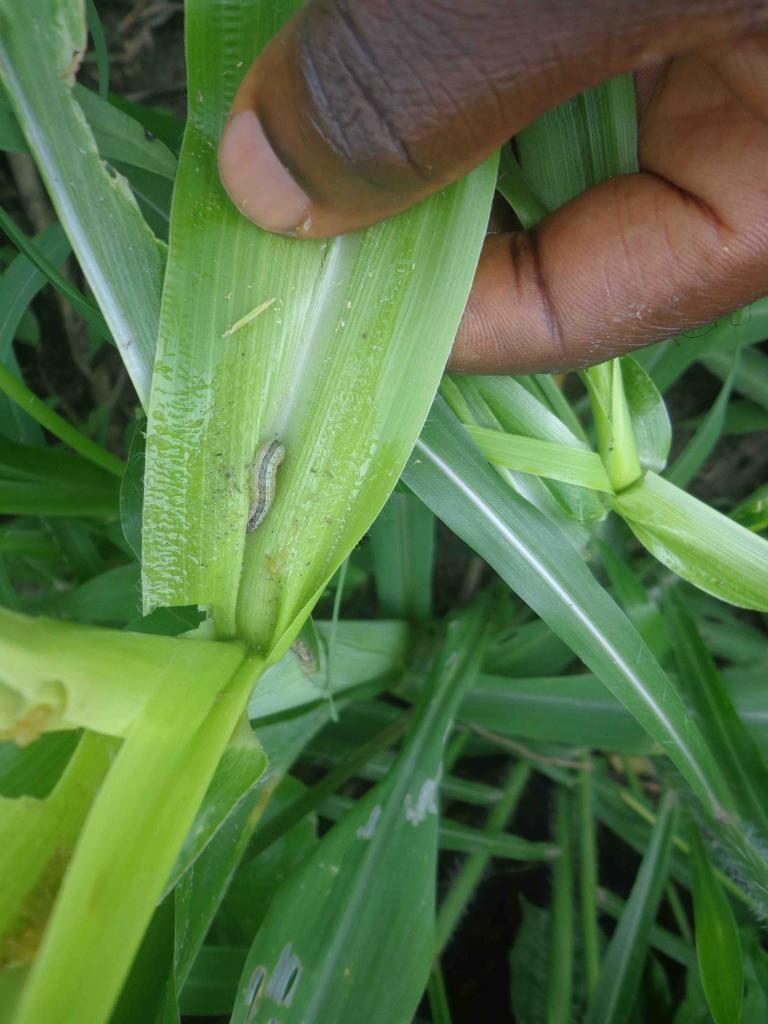Ulat tentara
Fall armyworm affects over 80 different plant species. The following are important hosts: maize, rice, cotton, peanuts, soy, alfalfa, sorghum, sugarcane, bermuda grass, tomatoes, peppers, potatoes, eggplant, and tobacco.
Fall armyworm (FAW) is a species of moth and a member of the Lepidoptera. It feeds on the leaves and stems of more than 80 plant species and causes major damage to economically important crops.
FAW is regarded as a highly invasive species due to its ability to spread and reproduce quickly; female’s can lay over 1000 eggs during her lifespan. The lifecycle of FAW includes: egg, sex larval stages, pupa, and adult moth. The larvae stage is responsible for damaging the crop, and the adult moths move in the direction of the wind, which can reach up to 100 km a day. The adult moth is nocturnal (active at night).
Gunakan varietas tanaman transgenik dan dikenal sebagai varietas Bt.
Tanaman atau bibit yang tahan terhadap penyakit merupakan syarat penting dalam budidaya.
Kebersihan area penanaman adalah hal terpenting, hindarkan tanaman dari gulma, sisa-sisa tanaman, bagian tanaman yang rusak, pertumbuhan tanaman yang tidak di ingginkan dan tanaman lain yang bukan merupakan tanaman utama budidaya.
Produk yang digunakan oleh satu atau sebagian dari dunia adalah mengandung bahan aktif sebagai berikut:
Group 1: cypermethrin, lambda cyhalothrin, bifenthrin, beta cyflutherine, dan deltametrin
Group 2: chlorantraniliprole dan flubendamide
Group 3: lufenuron, teflubenzuron, and methoxyfenozide
Group 4: pyridalyl
Group 5: indoxacarb
Group 6: acetamiprid
Group 7: emamectin benzoate
Group 8: methomyl
Group 9: chlorpyrifos
spinosad produk berbasis dan bacillus thuringiensis.
*Names marked in red are considered to be highly poisonous to beneficial insects.
*Names marked in green are considered to be organic and IPM (integrated pest management) compatible.
Image Gallery


